Does your car stall, and someone mentioned it could be the AC compressor? If you're scratching your head wondering if a bad AC compressor can cause a car to stall, you're in the right place.
In this article, we'll explain what an AC compressor does, how it can cause your car to stall, and what steps you can take next.
How Does A Car AC Compressor Operate?
The compressor is the engine that drives the air conditioner. It applies intense pressure to the refrigerant before pumping it into the condenser, where it transforms from a gas to a liquid.
The compressor must be in perfect working order for the AC to perform at its best.
In addition, the AC compressor employs a belt that connects your car's engine to the AC compressor. The belt must be in good condition to ensure it will not slip while the compressor cycles.
Why Does My Car Stall When I Switch On My AC?
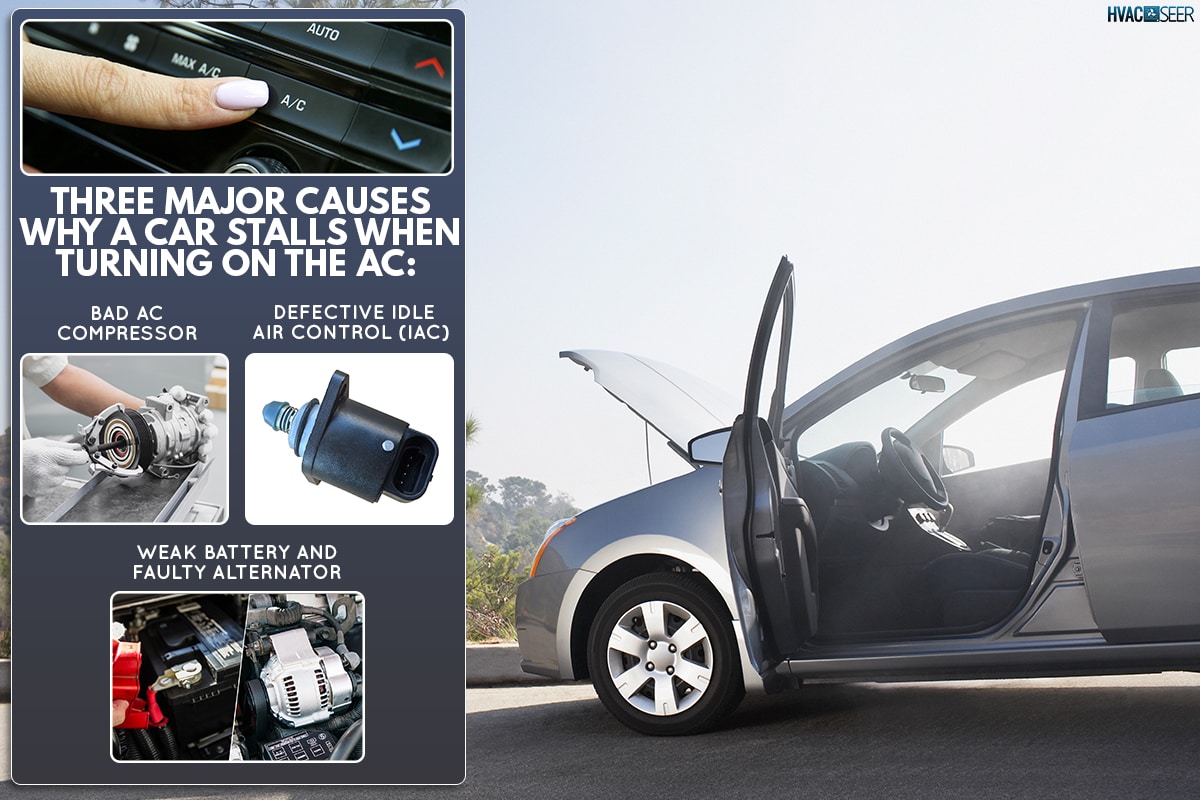
Experiencing your car stalling can be frustrating, especially if you can't get help right away. So figuring out why this problem occurs is the first step toward fixing it.
Here are the three major causes of why your car stalls:
1. Bad AC Compressor
A bad AC compressor is to blame if your car stalls while starting your car's air conditioner. This will result in demand for more horsepower in your car's engine compared to its normal status.
2. A Defective Idle Air Control (IAC)
The IAC is a valve in the throttle body that helps the car's engine to work properly. A car's engine requires a constant and sufficient air supply to run as it should.
The throttle is responsible for the air to move; by operating the gas pedal, it controls the air precisely.
However, the throttle is closed or shut off while the engine idles. This means that the car's engine needs another source of air supply without opening the throttle.
So now the IAC will come into play. It ignores the throttle's function to keep running the car's engine and injects air into the engine without pressing the gas pedal.
The IAC's ability to function properly can greatly impact how well the engine idles. Turning on your car's air conditioning system causes some pressure and stresses your car's engine.
Therefore, a defective IAC will result in stalling your car when you try to turn on the AC. Schedule your car service to replace it and avoid this issue.
3. Weak Battery And Faulty Alternator
Another reason why the car stalls is a faulty battery or alternator. As you know, your car's engine draws power from your battery, and the alternator charges the battery to ensure it provides energy.
Switching on your AC signals your car's battery and alternator to supply power. If either isn't working at capacity, there won't be sufficient power, and the car might stall in an effort to operate the AC.
Call your mechanic to replace both of them if necessary.
Can I Drive My Car If Its AC Compressor Is Bad?
The AC compressor is essential to efficient AC function but does not influence the vehicle's performance.
You can drive your car with a faulty AC compressor if you do not use the air conditioning while in motion.
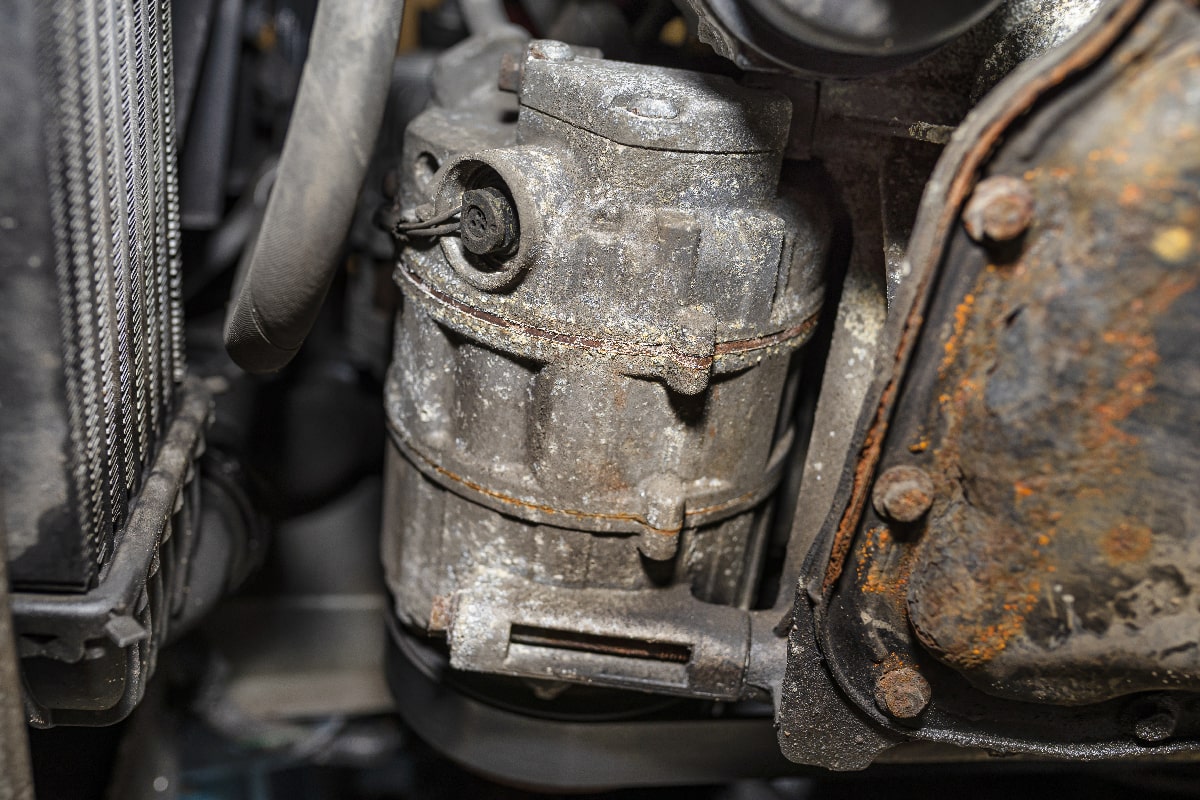
Will A Bad AC Compressor Affect My Car's Engine?
As long as the AC is turned off while driving, a damaged AC compressor cannot harm the car's engine.
The engine could suffer if a bad AC compressor were running, as it would continue to demand horsepower. This is due to the compressor's pulley bearing failing, which eventually stalls the car as a result of the stuck compressor.
Additionally, the belt could break, affecting every other component that associates with its system.
How Much Horsepower Do You Need For A Car AC?
You probably don't give much thought to anything as long as your car's cabin is cool. Remember that the total power necessary to run your AC will also depend on how pleasant the outside temperature is.
Severely hot weather can strain the other vital components of your AC. Thus it makes car fuel consumption even higher.
Furthermore, this contributes to the horsepower your car's engine is drawing to run the air conditioner. Vehicles will need about four horsepower or three kW of overall engine power to start the AC.
What Are The Signs Of A Car AC Compressor Going Bad?
Proper evaluation of your car's air conditioning system is the most practical way to avoid early system breakdown. You'll want to service the AC system every three to five years.
The following are the signs of a car's AC compressor becoming bad:
A Strange Sound Near The Engine
Strange noises such as squealing, chirping, and whining coming close to your engine are due to two faulty parts. This includes the clutch becoming bad and a seizing shaft.
This issue results from either lacking or not using the right type of compressor oil.
There's A Visible Rust Buildup In AC Compressors Body
Damage to the compressor's clutch or other external components could be a sign of internal issues. This is clearly due to corrosion which is also caused by natural elements like moisture from your car's AC compressor.
An oil leak will result in a compressor failure. Therefore, any damage, including bending, breaking, corroding, or leaking, should be handled properly to ensure optimal AC operation.
The Compressor Clutch's Pulley Is Not Working
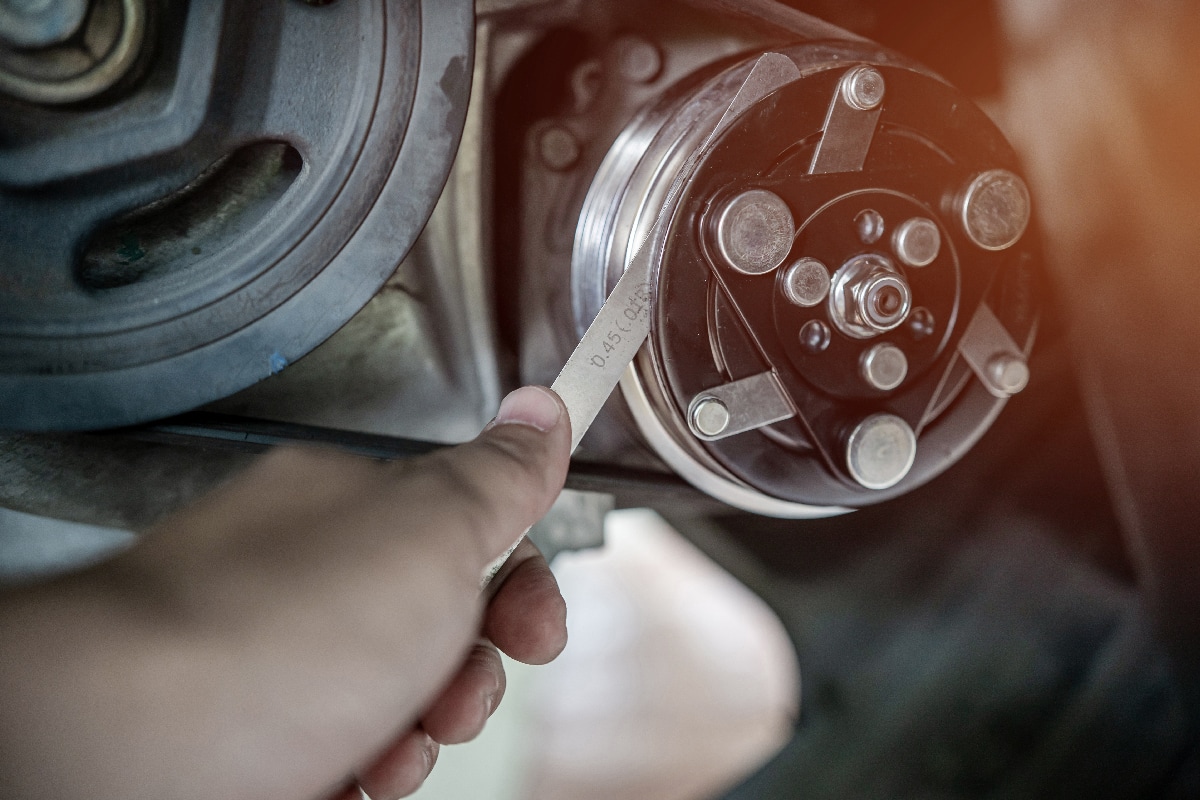
The good compressor clutch's pulley should engage instantly when you turn on the air conditioning. Otherwise, it won't spin and pump freon the way it should.
These are the common causes for the compressor not engaging:
- Incorrectly grounded.
- A low-pressure lockout.
- Damaged coil or faulty coil wiring.
- Bad fuse.
Comply with the regular servicing maintenance of your car's air conditioning system. Doing so will guarantee you that your car's AC system will work at its best and serve you for more years.
How To Check A Seized Compressor?
A seized compressor is one of the main reasons why a car stalls when the air conditioning is on. The compressor has likely locked up if:
- The car stalls.
- A screeching noise is recognizable.
- Or hot air blows from the vents.
- Smoke coming out of the compressor.
BEWARE! When performing a checkup, you should at least allow the AC compressor to cool down to avoid unnecessary injury.
Once you can finally touch the compressor, you'll want to inspect the clutch plate thoroughly. Any discoloration on the clutch plate could indicate the system is (or was) overheating.
Additionally, the clutch plate should turn relatively easily if the system is disengaged; try spinning it. You might need to use a socket wrench to stabilize the clutch plate nut while spinning it.
If you followed these steps but the issue persists, you probably need to replace your entire AC compressor unit.
How Much Will It Cost To Replace A Car AC Compressor?
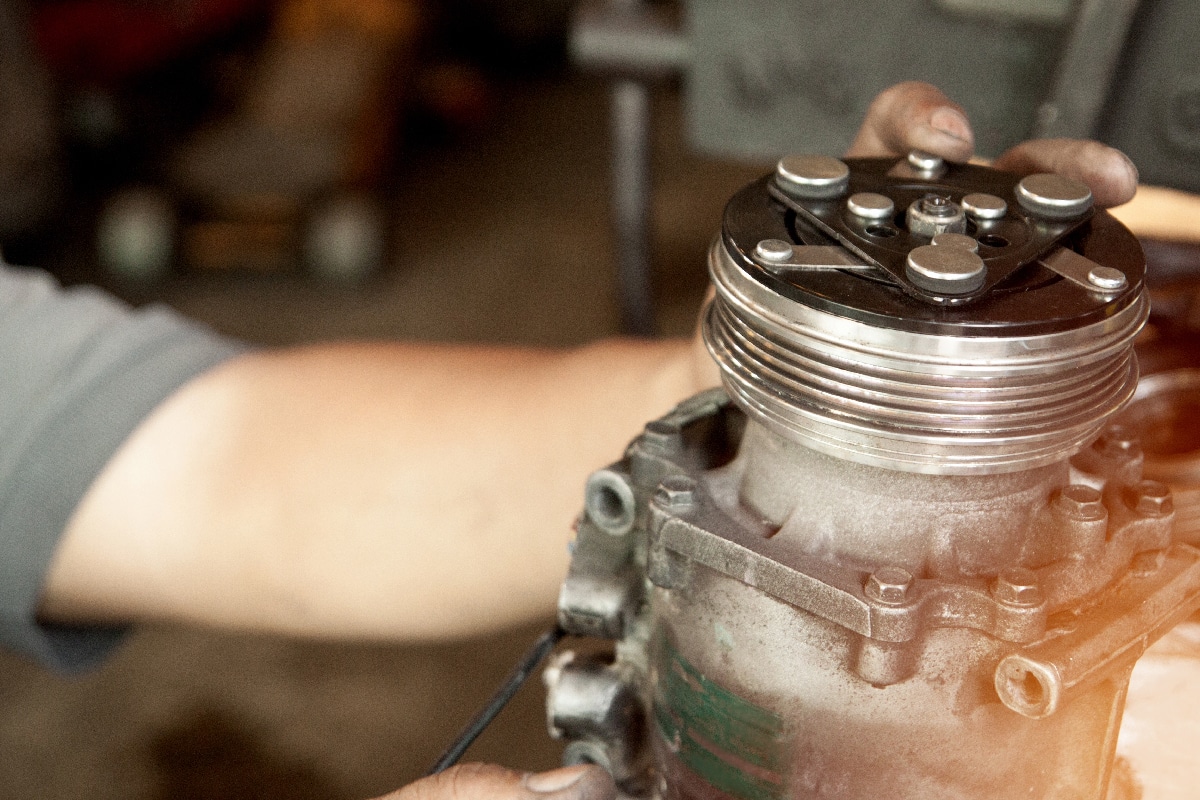
You've had enough of dealing with and enduring all the same issues of having a bad AC compressor. Deciding to have it replaced is the least practical solution to fix the problem.
You should include in your budget the labor and parts expenses. The charge of labor alone is between $160-$200; meanwhile, the cost for parts is around $650 and $840. Your all in all average expenses will be around $1,100.
Of course, the only exception for this substantial cost will always depend on your local servicing center.
In Closing
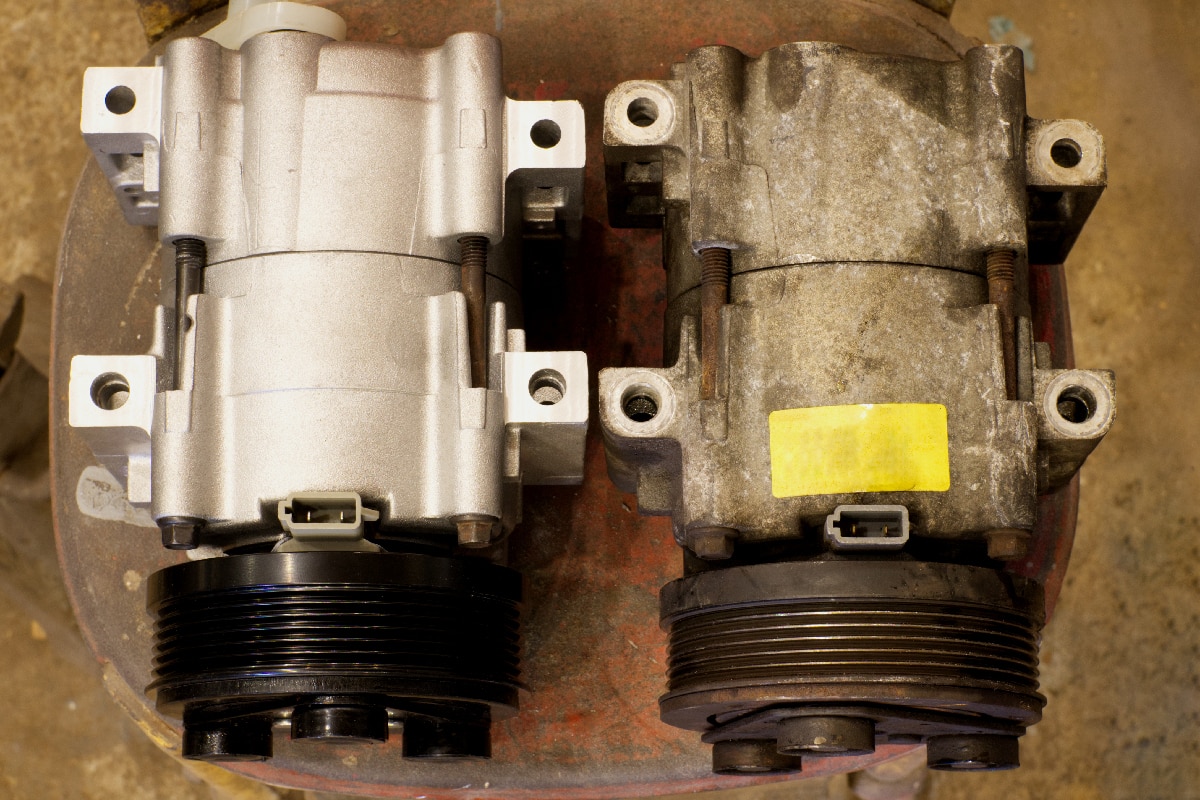
There's no denying that a bad AC compressor will stall your car if you insist on using the air conditioning, given that it is broken.
Once you've noticed that the compressor is defective or misbehaving, go to your nearest service center immediately.
Need additional information about a car AC compressor? Read These too -
Can A Car AC Compressor Leak Freon?
Can You Replace Just The Clutch On An AC Compressor? Should You?
